 As I’ve gone through this rewatch of Baccano, a few things have stood out for me. First, it definitely holds up – I think because it’s so singular that it could hardly belong to any specific era in anime history. I also think it’s not a series that lends itself to especially deep analysis – or requires it. I don’t think Baccano is a profound story with a lot of hidden meanings, though it’s certainly smart and uses immortality to ask (and answer) some interesting questions about human nature. This is about sensory overload – it’s experiencing it that makes it special.
As I’ve gone through this rewatch of Baccano, a few things have stood out for me. First, it definitely holds up – I think because it’s so singular that it could hardly belong to any specific era in anime history. I also think it’s not a series that lends itself to especially deep analysis – or requires it. I don’t think Baccano is a profound story with a lot of hidden meanings, though it’s certainly smart and uses immortality to ask (and answer) some interesting questions about human nature. This is about sensory overload – it’s experiencing it that makes it special.
 These two episodes are really the epitome of that. They’re pure unadulterated craziness, with the various parties pretty much competing to see who can out-crazy each other. I mean, when you’ve got Ladd in a facedown on top of a runaway train and he’s the less insane participant, you know things are nuts. None of the stuff that happens here is remotely realistic, but it does achieve a sort of emotional realism because the way the characters react to these insane situations seems quite sane.
These two episodes are really the epitome of that. They’re pure unadulterated craziness, with the various parties pretty much competing to see who can out-crazy each other. I mean, when you’ve got Ladd in a facedown on top of a runaway train and he’s the less insane participant, you know things are nuts. None of the stuff that happens here is remotely realistic, but it does achieve a sort of emotional realism because the way the characters react to these insane situations seems quite sane.
 I don’t know why Narita would have chosen to make Czes the story’s Job if it weren’t for that emotional connection. Even if we know intellectually that Czes is no kid, it’s still incredibly disturbing to see Rail Tracer do the things he does to him – not to mention the stuff we see in Czes’ memories (at the hands of fellow immortal Fermet). It’s with Czes, in fact, that Baccano may ask its most interesting questions. If someone is frozen in an immortal body at the age of 10, don’t they on some level remain a child eternally? Czes’ behavior often betrays hints that this might be the case, and that just makes the torture he suffers that much more grisly to watch.
I don’t know why Narita would have chosen to make Czes the story’s Job if it weren’t for that emotional connection. Even if we know intellectually that Czes is no kid, it’s still incredibly disturbing to see Rail Tracer do the things he does to him – not to mention the stuff we see in Czes’ memories (at the hands of fellow immortal Fermet). It’s with Czes, in fact, that Baccano may ask its most interesting questions. If someone is frozen in an immortal body at the age of 10, don’t they on some level remain a child eternally? Czes’ behavior often betrays hints that this might be the case, and that just makes the torture he suffers that much more grisly to watch.
 Between Rail Tracer, Ladd (who does have at least one person he cares about, in his twisted way) and Huey’s black suits there’s an overabundance of truly venal characters on this train. By that low bar Jacuzzi and the Delinquents begin to come off as almost heroic, despite their proclivity for violence and skill at delivering it. So does Rachel, who steps comfortably outside the bounds of an information broker by rescuing people left and right (including two of Jacuzzi’s team).
Between Rail Tracer, Ladd (who does have at least one person he cares about, in his twisted way) and Huey’s black suits there’s an overabundance of truly venal characters on this train. By that low bar Jacuzzi and the Delinquents begin to come off as almost heroic, despite their proclivity for violence and skill at delivering it. So does Rachel, who steps comfortably outside the bounds of an information broker by rescuing people left and right (including two of Jacuzzi’s team).
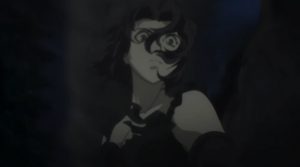 As for Szilard, we discover that he’s now devoured 18 of his fellow immortals, and in spite of the stiff competition if this series has anything close to a final boss, it’s clearly him. He blames Maiza for those deaths, which is obviously a stretch. But I don’t think Maiza can escape responsibility for the predictable way all this has turned out. His decisions have had consequences – though of course that’s ultimately most true about the decision to summon the demon in the first place. Even in fiction, it’s probably silly to assume immortality could ever be gained without paying a terrible price, or that humanity is remotely capable of responsibly living with it.
As for Szilard, we discover that he’s now devoured 18 of his fellow immortals, and in spite of the stiff competition if this series has anything close to a final boss, it’s clearly him. He blames Maiza for those deaths, which is obviously a stretch. But I don’t think Maiza can escape responsibility for the predictable way all this has turned out. His decisions have had consequences – though of course that’s ultimately most true about the decision to summon the demon in the first place. Even in fiction, it’s probably silly to assume immortality could ever be gained without paying a terrible price, or that humanity is remotely capable of responsibly living with it.


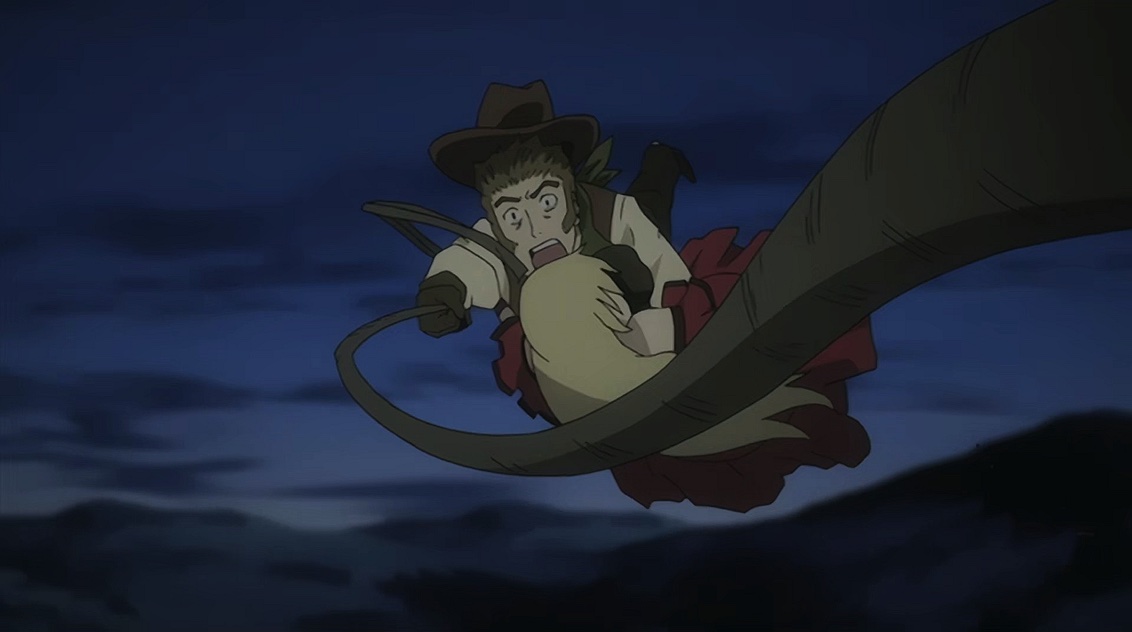
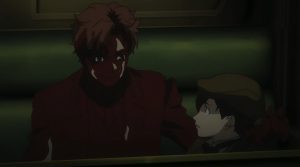

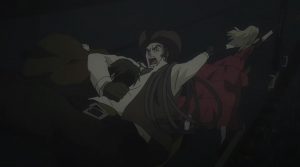


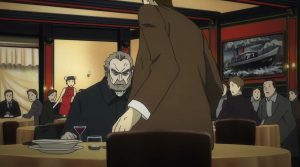





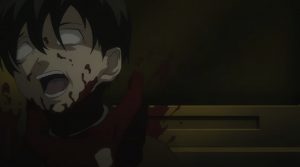

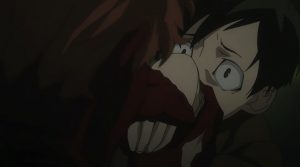
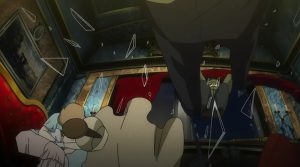

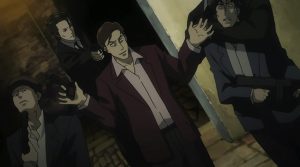




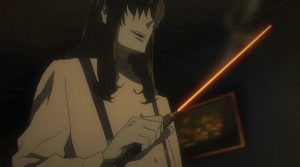








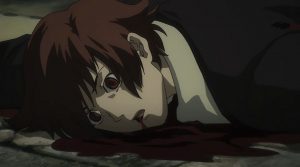


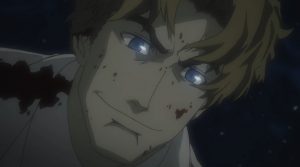
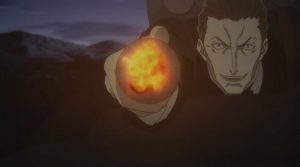
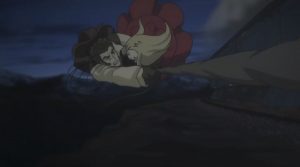
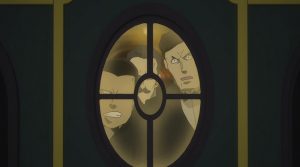

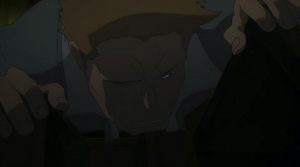
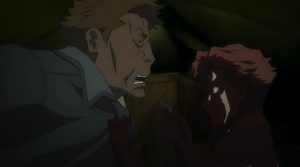

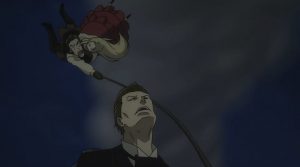


Yukie
June 13, 2020 at 12:27 pm“None of the stuff that happens here is remotely realistic, but it does achieve a sort of emotional realism because the way the characters react to these insane situations seems quite sane.”
I can’t agree more. And I think it’s what keeps this insane premise and zany cast within the boundaries of willing suspension of disbelief. And although it’s a little tropey, it’s nice to see that even Ladd Russo has something he cares about.